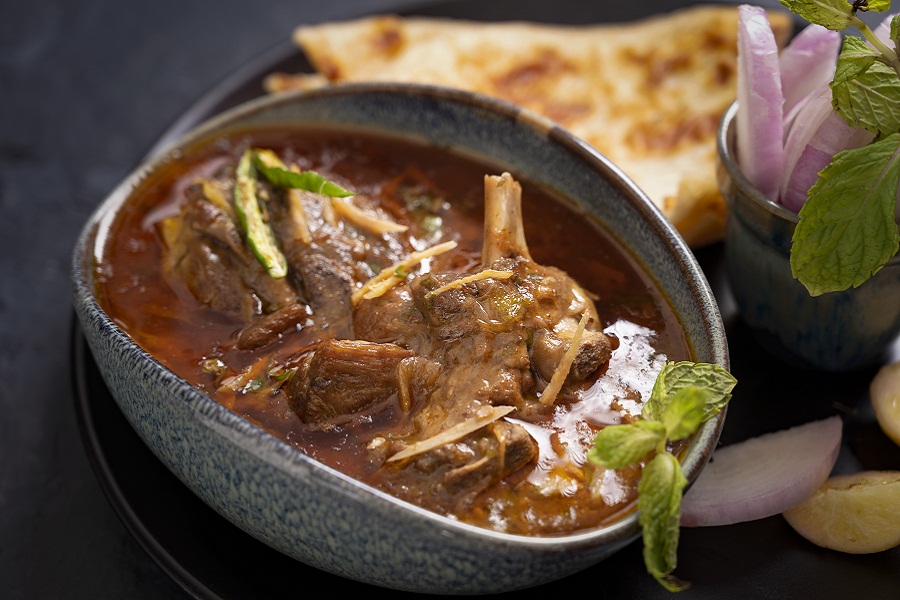
Published :
Updated :

Nihari—the name itself is enough to make your mouth water. Slow-cooked meat in a rich, aromatic curry with some naan glazed with butter is indeed a match made in heaven. Other trendy cuisines will come and go, but Bangladeshis' obsession with Nihari is constant.
One can sense the passion and craziness surrounding this one dish just by opening Facebook's suggested videos page. It's only possible to come across a food-review video on Nihari.
One can only call themselves a food vlogger if they have done at least one review of Nihari from any hyped place.
Nihari, derived from the Arabic word 'Nahaar,' meaning 'morning,' refers to its original purpose as a delicious morning meal that provided a savoury start to the day.
After 1947, it quickly gained popularity in Lahore, Karachi, Peshawar, Dhaka, and Chittagong through migration.
It was initially meant to be eaten as a heavy, high-energy breakfast dish on an empty stomach by working-class citizens, particularly the labourers under the Mughal rule.
It was much more suitable as a breakfast item for them because the high-protein meat allowed for a progressively slow increase in blood sugar, which decreased cravings throughout the day.
Nihari is no longer just a breakfast dish; it is now enjoyed throughout the day. It is not limited to any particular class because everyone loves it.
There's no doubt Nihari is a true winter delight. Its flavorful broth brings much-needed warmth and comfort on cold days. Spices like ginger, garlic, and cloves boost the flavour and contain antioxidants that help strengthen the body and immune system.
However, no true Nihari lover can wait for winter to come to enjoy this hot bowl of meaty goodness. So, in summer, Nihari's demand is nowhere less.
Wherever you choose to go to meet your Nihari cravings, whether at Lahori Nihari Dhaka in West Dhanmondi, Pehswarain on the old Dhaka's aristocratic lane in Wari, or maybe at Mia Bhai Restaurant in South Banasree, one thing is for sure; they are all bound to fill your heart with happiness.
Slow-cooked tender beef or lamb shank meat and bone marrow dipped in broth will surely put you in a good mood. Lemon wedges, chopped cilantro, and green chillies add an extra zing. The lemon's acidity balances the gravy's richness, while the mint, cilantro, ginger, and chillies add a refreshing kick to every bite. The fusion Nihari offers is much richer than any dish, and it takes time to have a Nihari alone, so the dish psychologically helps to think it is worth spending much money on.
Nihari on rainy days is incredibly comforting. The savoury broth and aromatic spices are perfect for the cool, damp weather. It's the ideal meal to warm you up and enjoy the chill vibe of a rainy day.
Making nihari requires patience, passion, and a good knowledge of proportions. The ingredients and techniques have also changed as the recipe has travelled through the subcontinent.
If carefully made with the proper techniques, homemade Nihari can be as good as restaurant versions. It requires simmering on low heat for a long time, and the flavours come from the blend of all the spices used.
No matter the weather, Nihari always retains its appeal. It's the ultimate comfort food, like a warm hug. If a dish tastes this good, all the hype and obsession surrounding it are well justified.
asmaulhusnapushon@gmail.com


 For all latest news, follow The Financial Express Google News channel.
For all latest news, follow The Financial Express Google News channel.